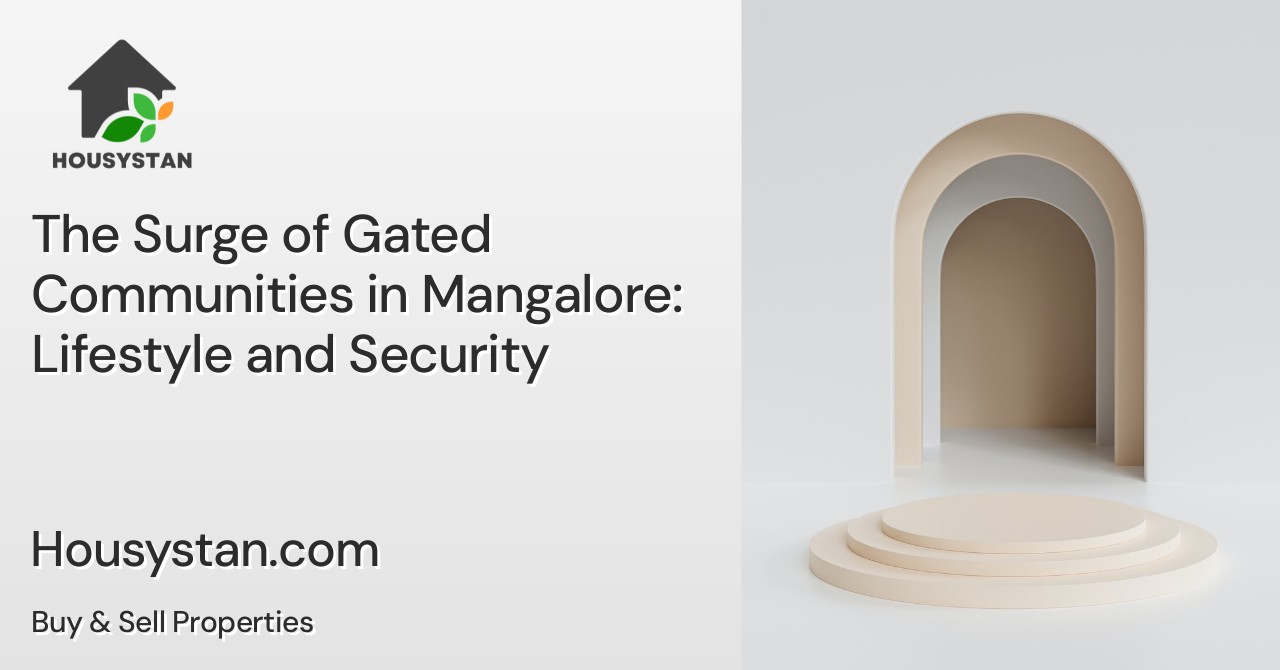The Surge of Gated Communities in Mangalore: Lifestyle and Security
Read latest blogs and articles from Housystan

The Information mentioned here was last updated on:
29/1/2026The coastal city of Mangalore has witnessed a remarkable transformation in its residential landscape, with gated communities emerging as the preferred choice for discerning homebuyers. This surge in demand for gated communities in Mangalore is driven by the dual promise of enhanced lifestyle amenities and robust security features. As the city continues to grow as an educational, commercial, and technological hub in coastal Karnataka, residents are increasingly seeking modern housing solutions that offer peace of mind and a superior quality of life.
Gated communities in Mangalore are strategically located in prime areas such as Kadri, Kottara, and Derebail, providing easy access to key city landmarks, reputed schools, hospitals, and shopping centers. These residential enclaves are thoughtfully designed to offer a blend of contemporary architecture, lush green landscapes, and world-class facilities. Residents enjoy exclusive access to clubhouses, swimming pools, fitness centers, jogging tracks, playgrounds, and dedicated spaces for social gatherings, ensuring a vibrant and active community life.
Security is a top priority in these developments, with 24/7 surveillance, CCTV monitoring, controlled entry and exit points, and professional security personnel ensuring the wellbeing of all residents. This heightened sense of safety has made gated communities particularly attractive to families, working professionals, and retirees seeking a serene and secure environment in Mangalore. Additionally, the presence of well-maintained internal roads, ample parking, and eco-friendly initiatives such as rainwater harvesting and solar lighting further enhance the appeal of these projects.
- Verified Tenants/Buyers
- Unlimited Property Listing
- Zero subscription/charges fee
For those considering investment opportunities, gated communities in Mangalore offer strong potential for appreciation, thanks to the city’s robust infrastructure development and growing real estate demand. Developers are responding to this trend by introducing innovative layouts, eco-conscious designs, and flexible payment options, making it easier than ever to own a home in one of Mangalore’s premier residential neighborhoods.
Whether you are searching for a luxurious villa, a spacious apartment, or a plotted development, Mangalore’s gated communities offer an unmatched combination of comfort, security, and lifestyle advantages. Explore the new wave of modern living in this vibrant coastal city and discover why gated communities are redefining the future of urban living in Mangalore.